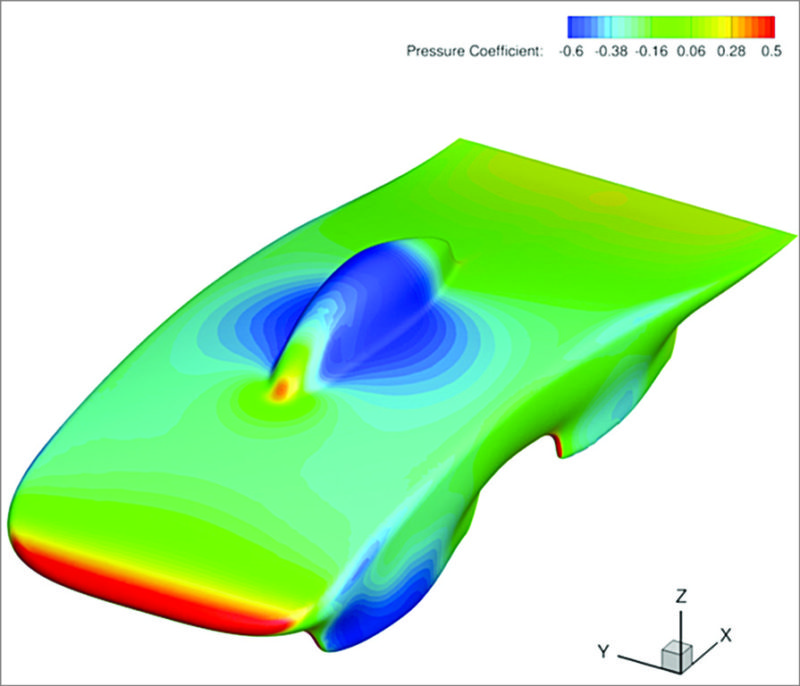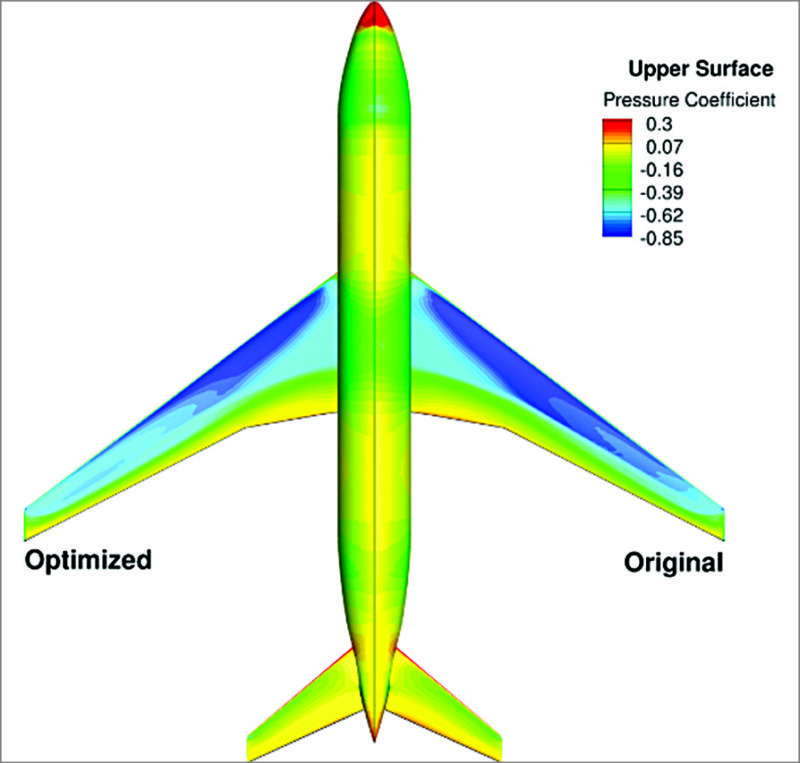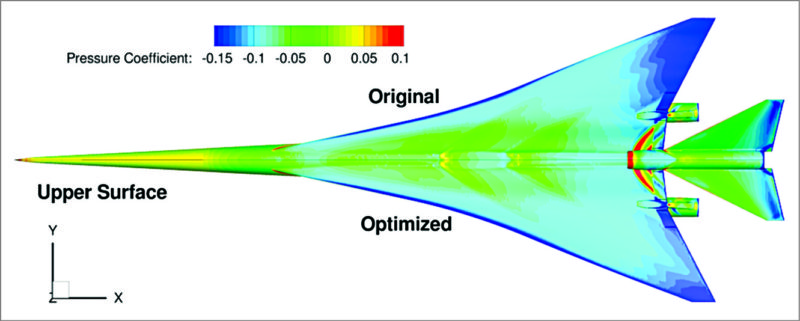The plane in the sky flies high and people looking at it marvel at its design. The complexities in designing the streamlined body of an aircraft are many. To make the designers’ lives easier, we present here SU2 software that helps to simulate the design free of cost.
SU2—an open source suite
No one ever ventured into partial differential equation problems until it was realised how optimisation of problems through multi-physics strategy is possible via computational analysis. And that is where SU2 is introduced. It is penned down in the easiest platforms like C++ and Python. Being an open source freeware, it beats all the proprietary, unavailable and expensive software used over the years for designing aircraft systems.
Analyse, optimise and design
The streamlined body of an aircraft can be optimised using the software. Each wing is optimised from upper to the lower end as per the requirement, while the right-hand side coloured column index on computer screen indicates pressure coefficients on each point. Thus, it carefully iterates the wing thickness and lift constraints in the aircraft as per calculations through differential equations.
Similarly, flow solution, adjoint solution, gradient calculations and mesh deformations can be simultaneously carried out using SU2.
SU2 is conceptualised for supersonic aircrafts too. Not only simulation but also optimisation during aircraft design is monitored by the software, where free-form deformation (FFD) control point variables keep a check on 3D area for shape deformation.

SU2 5.0.0 The Raven
Within a year of upgrade, SU2 5.0.0 version has come up with special features that were not included in 4.3.0 cardinal.
SWIG with high-level API.
Now developers can wrap C++ functions for scripting languages. So if you have some C++ functions, you can wrap them up in Python using SWIG accompanying high-level application programming interface (API).

Interpolation and transfer functions.
Sampling and experimentation give innumerable data, which might be discrete. Introducing another independent variable into the data to estimate the value of a function is called interpolation. And this technique has been introduced for the first time in SU2, enabling designers to create impeccable designs.
Free form deformation technique.
SU2 is a simulation software for solid geometric models using FFD technique. So if you have a deformed object and want to re-objectify from that hull object, you can do so using the FFD technique.

Harmonic balance flow and more feedback to user.
High-frequency oscillator circuits and complicated signal circuits can now be stabilised in SU2 software. For instance, in an amplifier, to gain steady state, the capacitor may be simulated hundreds to thousands of times to remove transients. The lesser the transients, the greater the efficiency and perfection in the design.
Also, feedback increases the efficiency through continuous improvements in input and output techniques. These additions to SU2 software help to fix bug issues and improve the system’s stability. Besides, boundary conditions help achieve accuracy.
Algebraic transition model implementation.
Aircrafts are streamlined in order to handle turbulence. Hence this transition can be well calculated using algebraic transition model. From wheel rotation to turbine movement to wing movement, everything can be monitored. And SU2 does it perfectly.

The SU2 boon
SU2 is developed to enhance the stability and efficiency of aircrafts. The fluid mechanism and dynamics is itself a wide area that needs to be explored more on mathematical concepts and design basics, thus creating a constant demand for simulation software such as SU2.
To download the latest version of the software: click here
Feel interested? Check out other software reviews.







